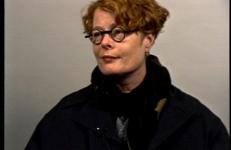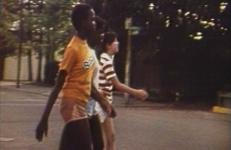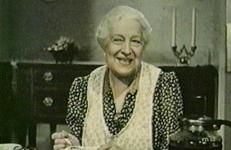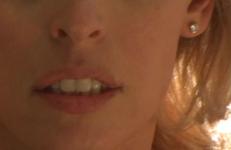In Wigstock ’94, Glennda and her friend Bobra attend Lady Bunny’s Wigstock festival. Following the event’s move from the East to the West Village, they explore the changing dynamics and configurations of queer culture in New York. The pair interview other drag queens, members of the local community, and passersby to get a sense of how an event like Wigstock is received by the city.
An episode of Glennda and Friends, hosted by Glennda Orgasm and Bobra. Featuring Jackie Beat, Joan Crawford, Jackie O., Sherry Vine, Nona Vulva, Wendy Wild, and Yumi.















